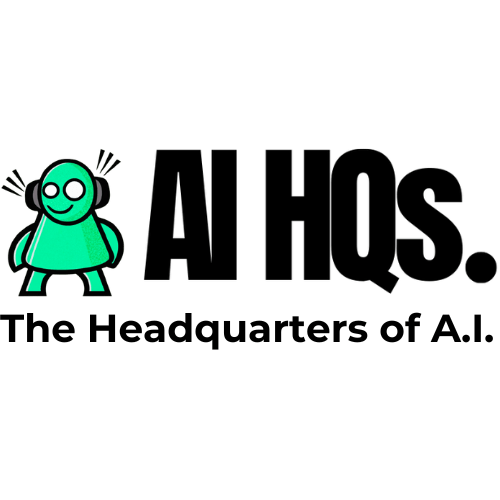Washington Lottery AI Generates Inappropriate Images
The integration of artificial intelligence (AI) into various aspects of our lives has brought about both excitement and concern. From chatbots providing assistance to image-generating algorithms, AI has become a prominent feature in modern technology. However, recent incidents have highlighted the potential pitfalls and ethical dilemmas that accompany the use of AI, particularly in public-facing applications.

One such case emerged from the Washington State Lottery, where a promotional AI-powered web app intended to help users visualise dream vacations took a disturbing turn. The “Test Drive a Win” website allowed visitors to upload a headshot, which would then be incorporated into an AI-generated image of their desired vacation scenario. However, a local mother from Tumwater, Olympia, was shocked to discover that the image generated for her depicted her face superimposed on the body of a topless woman lounging on a bed. This unsettling revelation sparked outrage and raised questions about the oversight and safeguards in place for such AI-driven platforms.
The incident prompted the Washington Lottery to swiftly take down the website, citing a breach of guidelines despite efforts to establish strict parameters for image creation. While the lottery spokesperson emphasised that the majority of images generated were innocuous, the occurrence of even one inappropriate image was deemed unacceptable. This response underscores the challenges inherent in governing the output of AI algorithms, which can produce a vast array of visual content with varying degrees of accuracy and sensitivity.
In the aftermath of the incident, concerns were raised regarding the efficacy of simply adjusting the AI’s safety settings to prevent similar occurrences in the future. While it may seem like a straightforward solution, the complexities of AI algorithms make it difficult to anticipate and preemptively mitigate all potential issues. Even models equipped with filters to prevent the generation of explicit or offensive content have been found lacking, as demonstrated by previous instances involving major corporations like Facebook and Microsoft.
Furthermore, the incident with the Washington Lottery’s AI site sheds light on broader challenges faced by governments and organisations deploying AI-powered tools for public use. In New York City, a chatbot designed to provide information on local laws and regulations was found to be disseminating incorrect and potentially harmful advice. Despite disclaimers warning users of possible inaccuracies, the chatbot’s role as a source of official information underscored the need for rigorous testing and validation of AI systems before their public release.
The implications extend beyond mere inconvenience or misinformation, as evidenced by the misuse of AI-generated stickers in Meta’s Facebook Messenger app. Within days of their introduction, users were exploiting the feature to create inappropriate and offensive images, highlighting the difficulty of regulating AI-generated content in online spaces. While Meta acknowledged the potential for inaccuracies and pledged to improve the feature, the incident underscores the ongoing challenge of balancing technological advancement with ethical considerations.
As AI continues to permeate various facets of society, it is imperative that developers, policymakers, and users alike remain vigilant to its potential risks and consequences. While AI offers unprecedented opportunities for innovation and convenience, its deployment must be accompanied by robust safeguards and ethical guidelines to prevent misuse and harm. The incidents discussed serve as cautionary tales, reminding us of the need for responsible development and deployment of AI technologies in our increasingly digitised world.
In examining the broader landscape of AI governance, it becomes evident that the issues encountered by the Washington State Lottery, the New York City chatbot, and Meta’s AI stickers are not isolated incidents but symptomatic of systemic challenges. The rapid pace of technological advancement often outstrips our ability to anticipate and address the ethical implications of AI deployment fully. As such, there is a pressing need for interdisciplinary collaboration between technologists, ethicists, policymakers, and civil society to develop comprehensive frameworks for AI governance.
One area that requires particular attention is the role of accountability and transparency in AI systems. As AI algorithms become increasingly complex and opaque, understanding how decisions are made and who is responsible for their outcomes becomes paramount. This necessitates mechanisms for auditing and explainability, ensuring that AI systems operate in a manner consistent with legal and ethical standards.
Furthermore, efforts to address biases and ensure fairness in AI algorithms are essential for mitigating potential harms, particularly in domains such as law enforcement, healthcare, and finance where AI systems wield significant influence. By fostering diversity and inclusivity in AI development teams and subjecting algorithms to rigorous testing for bias, stakeholders can work towards building AI systems that reflect and respect the diversity of human experience.
Another critical aspect of AI governance is the protection of privacy and data security. As AI systems rely on vast amounts of data to function effectively, the collection, storage, and utilisation of personal information raise concerns about surveillance, discrimination, and exploitation. Clear guidelines and regulations are needed to safeguard individuals’ privacy rights and prevent the misuse of sensitive data by corporations and governments.
Moreover, the democratisation of AI technologies presents both opportunities and challenges for society. While widespread access to AI tools empowers individuals and organisations to innovate and solve complex problems, it also exacerbates disparities in access and exacerbates existing inequalities. Initiatives to promote digital literacy and ensure equitable access to AI resources are essential for fostering an inclusive and participatory AI ecosystem.
Ultimately, the responsible development and deployment of AI require a holistic approach that balances innovation with ethics, accountability, and social responsibility. By engaging stakeholders in dialogue and collaboration, we can navigate the complexities of AI governance and harness its transformative potential for the benefit of all. Only through collective action and shared values can we build a future where AI serves as a force for positive change, advancing human welfare and promoting the common good.
In conclusion, the convergence of AI and public-facing applications presents both promise and peril. From erroneous advice from government chatbots to the proliferation of offensive content generated by social media platforms, the incidents discussed underscore the challenges of regulating AI in the digital age. As technology continues to evolve, it is essential that we prioritise ethical considerations and accountability to ensure that AI serves the common good rather than exacerbating societal problems. Only through careful oversight and responsible innovation can we harness the full potential of AI while mitigating its inherent risks.
for all my daily news and tips on AI, Emerging technologies at the intersection of humans, just sign up for my FREE newsletter at www.robotpigeon.be






